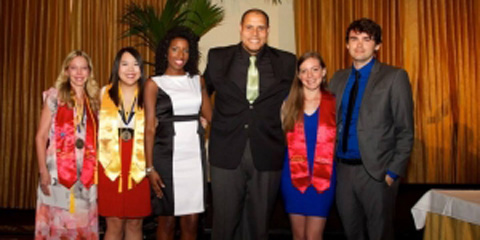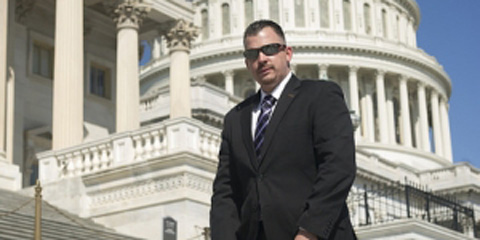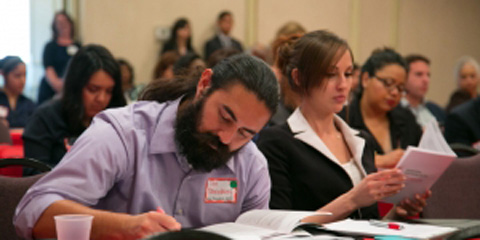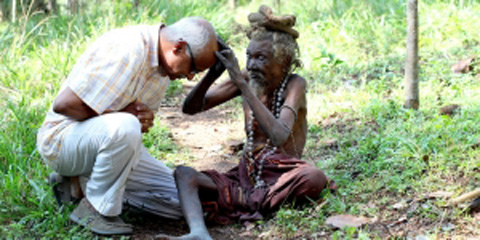News Archive
-

The USC School of Social Work reached a new graduation milestone on Friday with its largest class of students graduating from its innovative online Master in Social Work program, the Online MSW. The USC School of Social Work celebrated a graduating class of more than 1,300 students between its on-campus and online Online MSW programs. Of this class, more than 160 graduates traveled to Los Angeles from across the country to celebrate their achievement. This is the third year the USC School of Social Work has brought together students from both programs to walk together at commencement.
-

Each year, the USC School of Social Work, the university and other service-oriented organizations honor faculty and students who have made significant achievements in their academic careers and contributions to the USC and at-large communities. Many were honored at this year’s Dean’s Recognition Ceremony, which also recognized new and past student leadership, those on the Dean's List and Dean's Honorable Mentions.
Student Awards and Recognition
-

In March, Iraq and Afghanistan Veterans of America (IAVA) held its annual lobbying effort in Washington, D.C. “Storm the Hill” gathered 32 veterans from across the nation to meet with 150 members of Congress and their legislative directors to discuss the pressing issue of veteran suicide. The U.S. Department of Veterans Affairs reports that approximately 22 veterans die by suicide per day, i.e., nearly one per hour, 8,000 a year and 100,000 since Sept. 11, 2001. The lobbying effort produced Senate Bill 2182 “Suicide Prevention for America’s Veterans Act,” sponsored by Sen.
-

A researcher in the USC School of Social Work has assembled a multidisciplinary team to study how the “built environment” of neighborhoods and surroundings influences the long-term health of homeless people who live in state and federally supplied housing.
-

Graduate students from the USC Price School of Public Policy and the USC School of Social Work partnered to organize the first Students of Color and Allies Policy Forum, which examined policy, planning, development and social work issues within the context of race, ethnicity, class and social justice.
More than 70 USC Price and social work students came together to discuss how to address racial and social justice issues in their fields. In addition to sharing their own experiences, the students heard from academic and community experts at the half-day event.
-

USC Master of Social Work student Amanda Cockrell comes from a family with a history of helping others.
Her grandmother helped introduce family planning in West Africa, opening clinics and delivery centers while teaching people about pregnancy and contraception. Cockrell’s mother continues to run one of the clinics, offering vaccinations, surgeries and general treatment for the people of Dakar and doing her best never to turn down anyone who cannot afford care. Cockrell wants to continue this legacy of helping people in need and bringing awareness to their plights.
-

The Center for Innovation and Research on Veterans & Military Families (CIR) at the USC School of Social Work received funding from the Science Applications International Corporation (SAIC) to help publicize the unique transitional challenges facing National Guard and Reserve service members.
-

In the lush, verdant hills of India, Bhagavan Kani rises from his bed.
He spends a few serene moments gazing at the early morning sun as it crests the horizon, sipping water infused with a local spice leaf called tulsi. Kani eats a simple breakfast of raw vegetables and fruits. Barefoot, he sweeps the leaves from a dirt path in his garden and climbs steep stone steps to take a stroll through the hilly village. Later that day, he sits outside his coconut-leaf-thatched hut, recites tribal songs, and talks to plants and animals.
-

For many students, attending a university can be tough. There are so many new experiences to navigate – finding a place to live, deciding on a course of study, taking multiple rigorous classes at once – that it can be overwhelming.
-

The last time I visited Tacloban City in the Philippines was 2007. I stayed with a local family who warmly welcomed me into their lives. They lived in abject poverty in a seaside shanty town of plywood and corrugated steel.